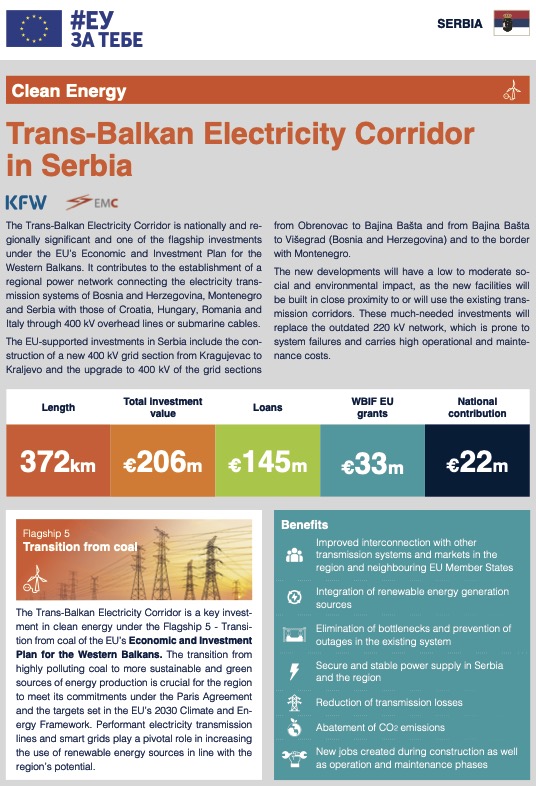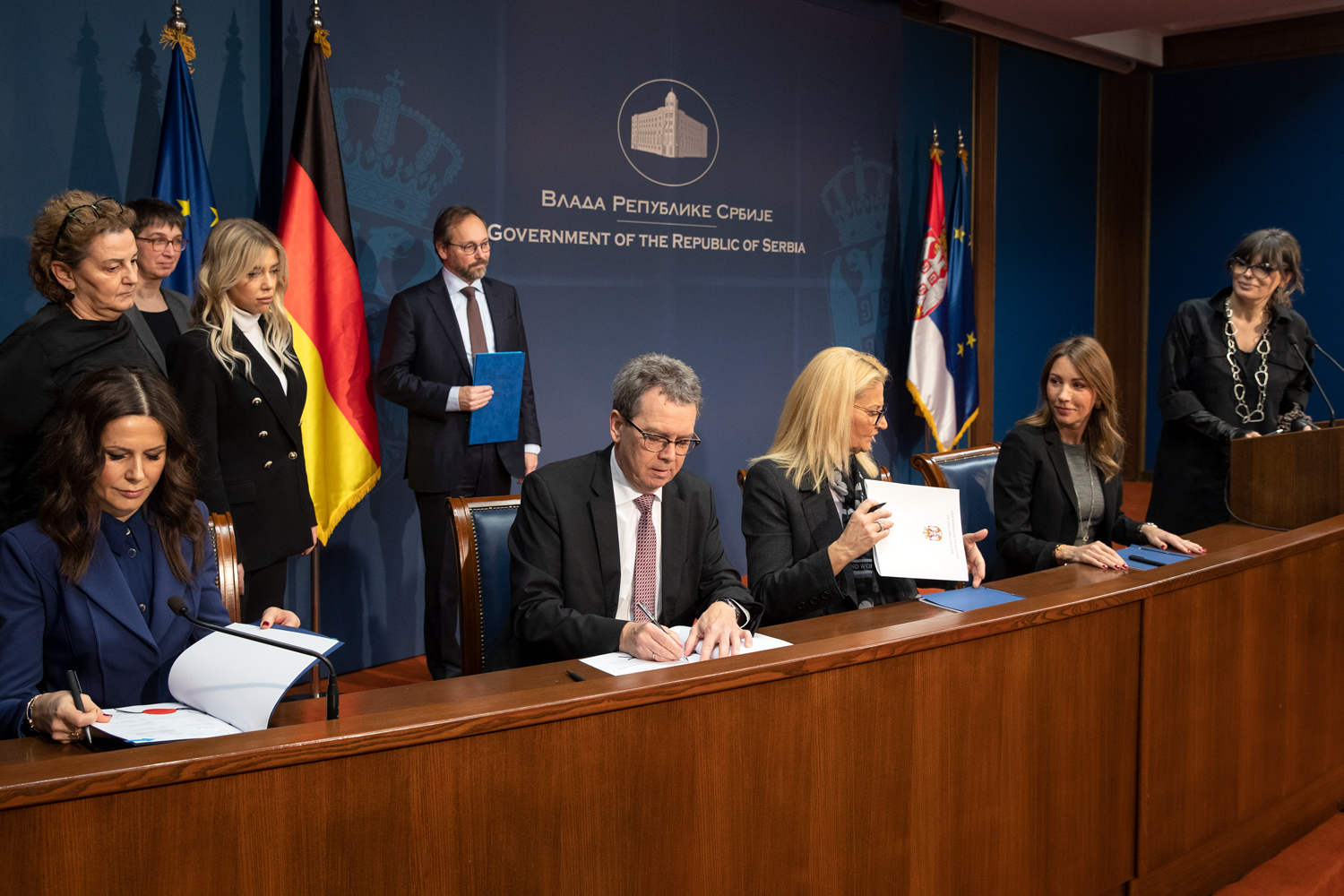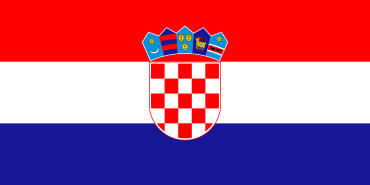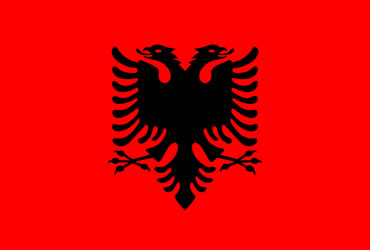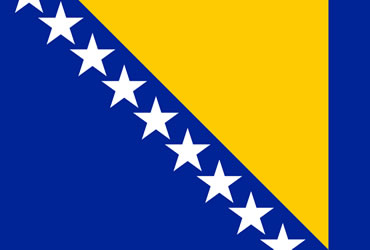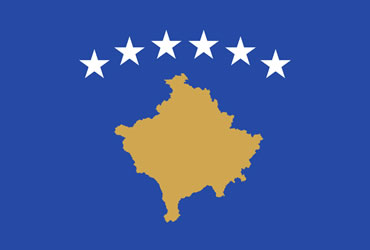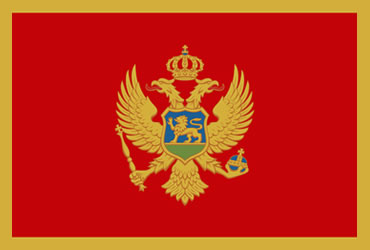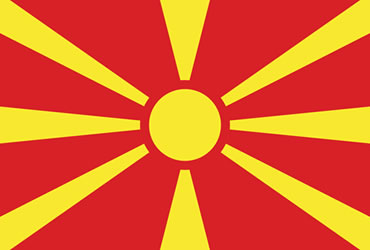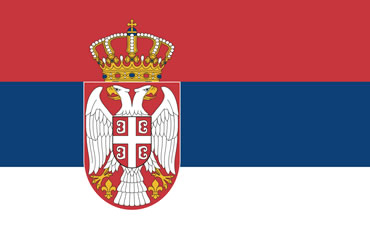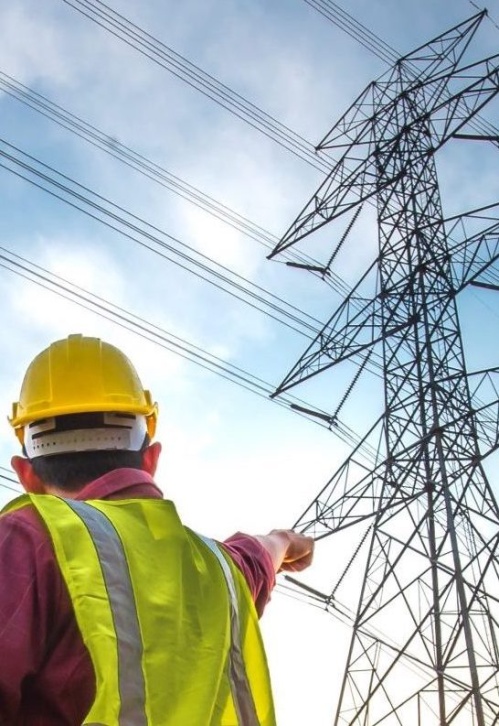
EU supports the final section of the Trans-Balkan Electricity Corridor in Serbia
On 23 January, the Minister of Mining and Energy of Serbia, Dubravka Đedović, the Director of the German Development Bank (KfW) office Belgrade, Rüdiger Hartmann, the Minister of European Integration Tanja Miščević and the Director of "Elektromreža Srbije" Jelena Matejić signed a €8.9 million investment for the implementation of the 84-km section of the Trans-Balkan Electricity Corridor in Serbia.
The EU has contributed to the project with a WBIF grant of €11 million complemented by a KfW loan of €30 million. The section involves the construction of a 400-kV interconnecting transmission line from the Bajina Bašta substation to the borders with Bosnia and Herzegovina and Montenegro.
Start of works is scheduled in early 2025 - after the construction on the third section connecting Obrenovac to Bajina Bašta has started - and completion can be expected in 2027. A total of 120 kilometers of the Trans-Balkan Corridor on Serbian territory have already been built, from Pančevo to the border with Romania and from Kragujevac to Kraljevo.
The project is part of the European Commission´s effort to improve energy security in the region, and follows the adoption of the EU €1 billion Energy Support Package for the Western Balkans, launched by President von der Leyen on 6 December 2022 in occasion of the EU-Western Balkans summit.
Emanuele Giaufret, the Ambassador of the EU to Serbia, said: "The EU continues to be Serbia's largest donor. Since 2000, Serbia alone has received over €835 million for the energy sector. The Trans-Balkan Electricity Corridor is an example of good cooperation and continuous productive work on common goals, such as greater energy efficiency, improved security of supply and maximum use of renewable energy sources. The Corridor will better connect the economies within the region, but also with the EU. In addition, Serbia’s budget will benefit from €165 million of immediate support this winter to keep energy prices affordable, especially for vulnerable households and businesses. This is part of a wider energy package worth €500 million for the entire Western Balkans region."
Rüdiger Hartmann, Director of the German Development Bank (KfW) office in Belgrade said: "The signing of the grant agreement ends the most important part of the Trans-European Corridor in Serbia, because the last section, with a total value of €30 million, will complete the entire project."
Dubravka Đedović, the Minister of Mining and Energy, said: "The construction of the final section of the Trans-Balkan Corridor is another step towards increasing the energy stability and the security of supply for citizens and companies in Serbia. The project is also important for the construction of the pumped-storage hydropower plant RHE Bistrica, another investment in the pipeline”. Minister announced that additional investments in the transmission system are planned - the construction of the Pannonian corridor through Vojvodina, and the strengthening of the grid in the central part of Serbia and interconnections with Bulgaria and BiH.
Trans-Balkan Corridor Serbia Factsheet (January 2023)
The 372-km long Trans-Balkan Electricity Corridor in Serbia is one of the flagship investments of the EU’s Economic and Investment Plan for the Western Balkans. It contributes to the establishment of a regional power network connecting the electricity transmission systems of Bosnia and Herzegovina, Montenegro and Serbia with those of Croatia, Hungary, Romania and Italy through 400 kV overhead lines or submarine cables.
The EU-supported investments in Serbia include the construction of a new 400 kV grid section from Kragujevac to Kraljevo and the upgrade to 400 kV of the grid sections from Obrenovac to Bajina Bašta and from Bajina Bašta to Višegrad (Bosnia and Herzegovina) and to the border with Montenegro. These much-needed investments will replace the outdated 220 kV network, which is prone to system failures and carries high operational and maintenance costs.
Additional information (EU Delegation in Serbia):
https://europa.rs/transbalkanski-koridor-za-stabilno-elektrosnabdevanje/
